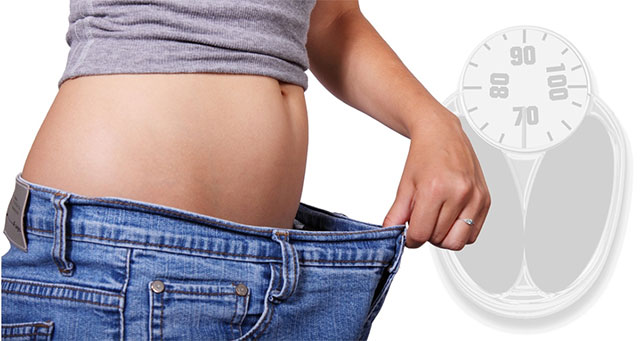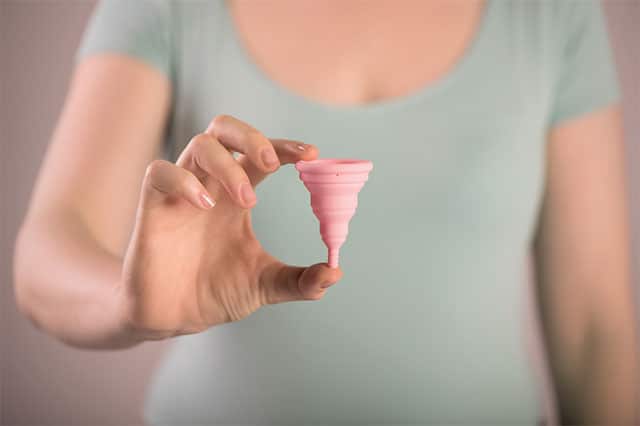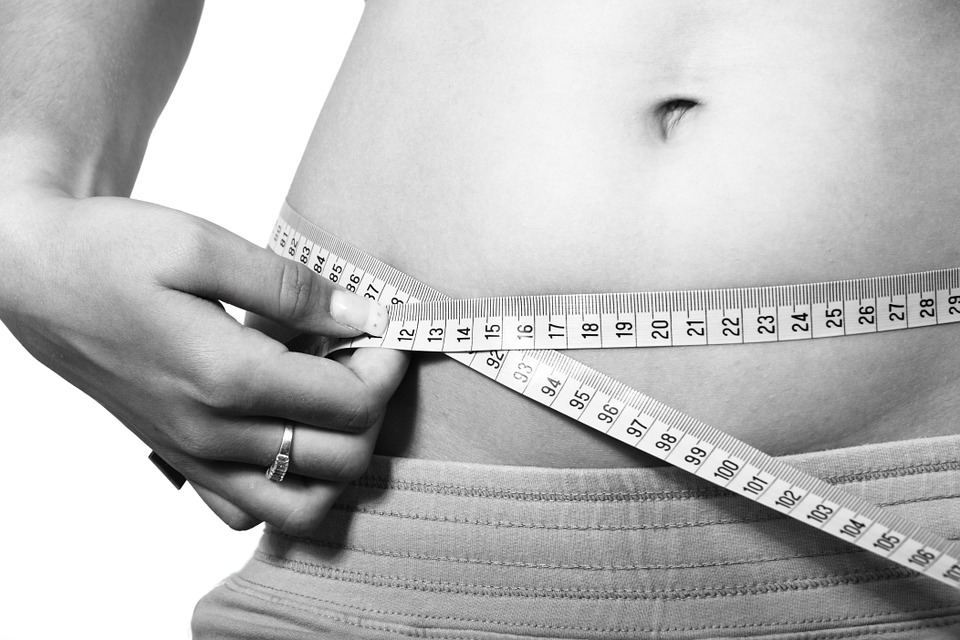Weight fluctuation can be frustrating if you are tracking your weight. Many of us cut for sporting seasons such as wrestling, boxing, rowing, or indoor rowing. Some of us have been advised by our doctors to gain weight. Others of us are trying to maintain our current weight within a range after successfully cutting for our athletic season.
Weight fluctuation can be stressful, particularly if you have a weigh-in within a week to qualify for a weight class or if you’re trying to maintain a healthy weight. Understanding what’s behind weight fluctuation can help you have peace of mind and stay healthy.
What Is Weight Fluctuation?

Image source: Pixabay
Weight fluctuation is a natural occurrence which happens in even the healthiest individuals, based on a number of factors. If you weigh yourself after your morning bowel movement and again immediately after dinner, you may appear to be five or 10 pounds heavier. This is not fat gain. To gain five pounds of fat, you would need to consume an excess of 17,500 calories. If you need 2,000 calories per day for weight maintenance, you would have to consume 19,500 calories in a day to gain five pounds. This volume of caloric consumption does not happen in one day. If you are tracking your weight on a daily basis to achieve a goal, put these numbers in a spreadsheet like Excel, Numbers, or Google Sheets. After 30 days, have the spreadsheet make a line graph of the data points so you can see a trend. The more data you have, the more accurate a depiction you can get of your progress.
To mitigate the effect of weight fluctuation on tracking your weight, weigh yourself immediately after using the restroom after you wake up. It is best to do this naked on a hard, flat surface. Your weight may fluctuate by around two pounds depending on what kind of clothes and shoes you wear. If your fluctuating weight is stressful to you, weigh yourself only once a week. This may make it easier to see trends in your weight.
Why Does It Happen?
Weight fluctuations happen for a variety of reasons. Here are the most common.
Carbohydrates

Image source: Pixabay
The average adult eats between three and five pounds of food per day. For every gram of carbohydrates consumed, your body holds on to three to four ounces of water. So if you ate 250 grams of carbs, your body could be retaining 750 grams to a kilogram of water. Thus, you can eat only half a pound of carbohydrates, but this will be reflected in a weight gain on the scale of 2.5 pounds or more.
Sodium

Image source: Pixabay
Sodium has zero calories, so it does not cause true weight gain, but it does cause your body to retain water. To mitigate this, if you are a healthy adult, eat no more than 2.3 grams of salt per day. If you have hypertension or are genetically predisposed to it, eat no more than 1.5 milligrams of salt daily. This, along with staying hydrated, will greatly help to reduce fluid retention.
Hormones

Image source: Pixabay
Women are very susceptible to fluctuations in water weight. During the mid-follicular period (middle of your cycle), your water weight is usually at its lowest. It peaks on the first day of menstruation and then increases again slowly over the 11 days around ovulation. Ovarian hormones progesterone and estradiol may also lead to emotional eating and binge eating.
Women commonly crave iron during menstruation, which is one reason you crave chocolate. If you have cravings during menstruation, but would like to minimize temporary weight gain from carbs, try eating grilled chicken and spinach. If you want chocolate, be sure to eat dark chocolate with a minimum of milk and sugar.
Alcohol

Image source: Pixabay
Alcohol is well known as a diuretic, so within 20 minutes of your first drink, you may notice a decrease in weight. However, this excessive urination leads to an electrolyte imbalances which can cause you to overeat salty foods, which will result in a temporary net weight gain. Alcohol also lowers your inhibitions, so you are more likely to over-consume unhealthy calories.
To mitigate this, ensure you are hydrated before you start drinking and drink a glass of water between each alcohol beverage you imbibe. Also, snack on healthy foods rich in water, such as celery or strawberries, to keep you hydrated rather than eating high-sodium bar foods such as pretzels.
Medication

Image source: Pixabay
Certain medications, such as those that treat migraines, seizures, depression, anxiety, hypertension, and hyperglycemia can cause you to retain water or increase your appetite. Some of these affect where your body stores glucose. You may find a fat gain of several pounds per month, particularly around your midsection, when taking antidepressants.
Do not worry if your weight increases by a few pounds within the first month of starting a new medication. If you gain 10 or 20 pounds in the first month of taking a new medication, ask your doctor how to safely change your medication.
Exercise

Image source: Pixabay
Exercise causes around 25 to 45 ounces per hour of water weight loss due to sweating. This is particularly true of intense cardiovascular exercise. Rowing for an hour at only a moderate pace burns 420 calories per hour for a 125-pound individual. This is equivalent to 105 grams of carbohydrates. Burning these carbs results in an additional fluid loss of 315 to 420 grams of water. In total, an hour of exercise can result in a fluid and glucose weight loss of over a pound. Vigorous rowing can result in a fluid and glucose weight loss of over two pounds.
On the other hand, if you are new to resistance training, also known as weight lifting, or weight training, your muscles will retain water. Even if you have been lifting weights for years, if you lift very few repetitions of very heavy weights, your muscles will store water temporarily, resulting in a temporary weight gain on the scale.
Bowel Movements

Image source: Pixabay
If you eat an adequate amount of fiber and stay hydrated, fecal transit time is only 24 to 48 hours, but it can be as many as 40 to 60 if you eat a less healthy diet. But how much do your feces weigh? Your feces weigh only 120 to 170 grams, so a bowel movement will result in less than a 0.4 pound temporary weight loss.
Hydration

Image source: Pixabay
Drinking two cups of water will temporarily cause a pound of weight gain. If you drink half of a gallon of water, juice, soda or milk, you will see a scale increase of approximately four pounds. Thus, it is best to weigh yourself in the morning after urination. Contrastingly, if you are chronically dehydrated, your body will retain water thinking it is a scarce resource. This will result in a weight gain on the scale.
How Much Weight Fluctuation Is Normal?
A five-pound weight shift from day-to-day is normal, but it is not abnormal to see shifts of 20 pounds after a 10-day cruise with all the free food you can eat and often alcohol vouchers. It is easy to see a 3.5 pound weight shift within even the same day due to consuming carbohydrates. Menses may cause a five pound weight gain due to water retention. Medication can cause weight gain of just a few pounds due to water retention, or it can cause actual fat gain. Alcohol may result in an immediate decrease in water weight, but getting drunk may lead you to consume an excess of calories, gaining real fat.
If you have a goal to lose weight, track your progress using other methods. If your weight loss stalls, measure yourself around the waist, hips, arms, thighs or wherever else you are trying to lose weight. Do this once a month to track your progress. If you see the scale go up and stay up for several days in a row, you may have gained fat. The exception to this is women, who can see a weight increase of around five to 10 pounds for up to 11 or 12 days each month.
Conclusion

Image via Pixabay
Weight fluctuation is frustrating, but it is perfectly normal. Temporary fluctuation happens from hour to hour and day to day. There are several reasons why this may occur. Understanding how much of a variation is normal can help you worry less, or you can weigh yourself weekly. If you are trying to lose more than a few pounds, incorporate other means of measuring fat loss into your routine, such as taking body circumference measurements monthly. This is the best way to truly track your progress and see if your weight gains are temporary or due to real fat.
Only if you see a weight increase on the scale for more than a week or so can you assume you have probably experienced an actual fat gain. The important thing to remember is not to worry, and do your best to eat healthy. If your weight is an issue for you, speak to your general health practitioner and ask for a recommendation for a registered dietician.Featured image via Pixabay
